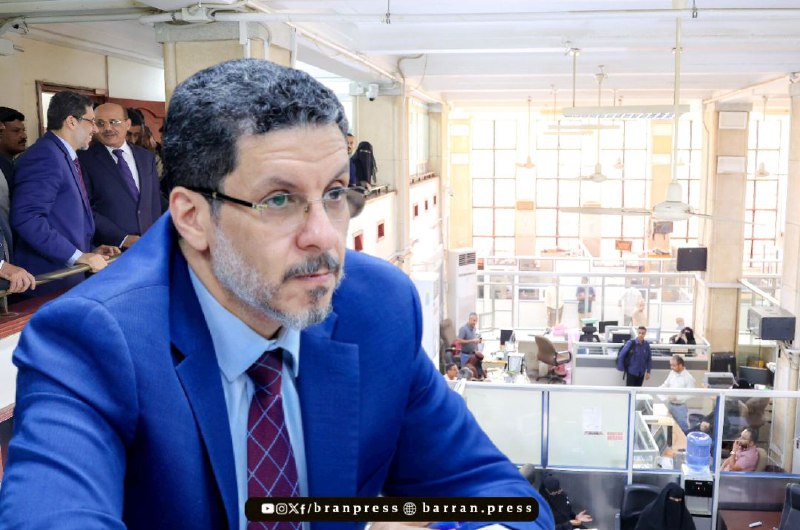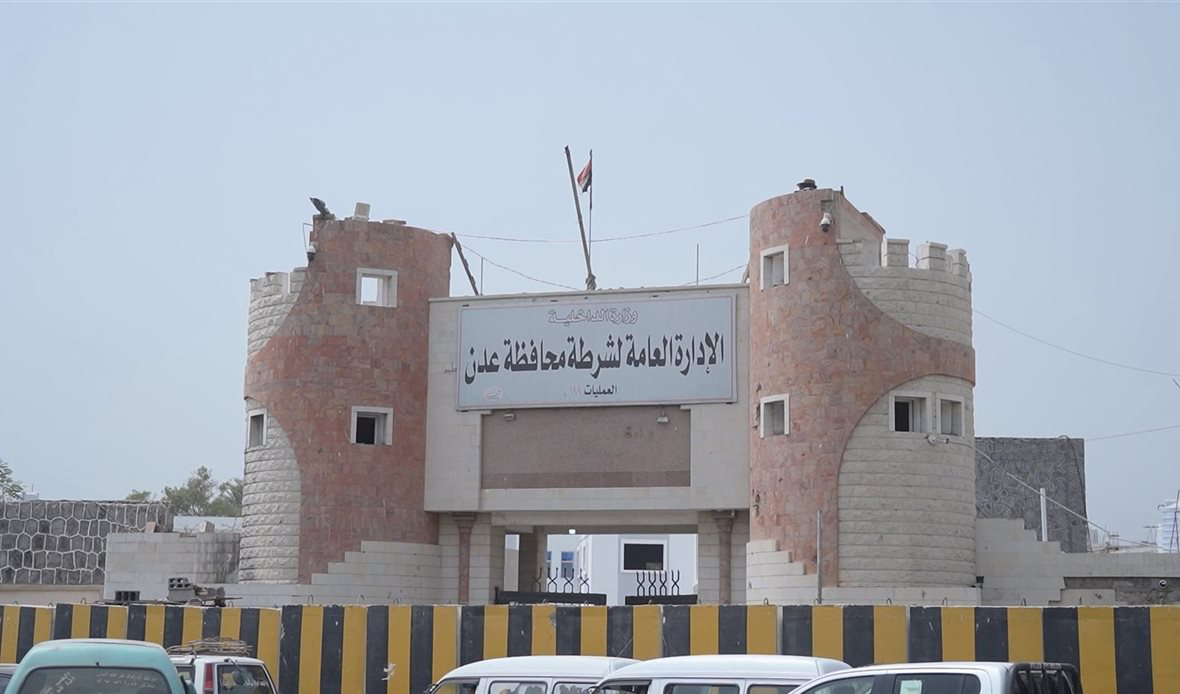
Barran Press
Yemeni Prime Minister, Ahmed bin Mubarak, emphasized the need for synchronized fiscal and monetary policies and a collaborative relationship between the government and the Central Bank of Yemen, during a visit to the bank's headquarters in Aden on Sunday, June 9th, 2024. This comes a day after his return from a visit to Saudi Arabia and the UAE.
Bin Mubarak stressed the importance of stabilizing prices to improve the lives of citizens. He also highlighted the government's full support for the Central Bank's decisions and policies aimed at protecting the banking system from unilateral actions and destructive practices by the Houthi group, internationally designated as a terrorist organization.
During a meeting with the Central Bank leadership, Bin Mubarak reviewed the bank's recent decisions to protect the banking sector from collapse. He emphasized the government's commitment to developing its revenue streams, improving collection rates, streamlining spending, and implementing comprehensive reforms, considering these as cornerstones of its fiscal policy to strengthen economic stability.
The Prime Minister praised the bank's national role and its staff's efforts in challenging circumstances, acknowledging their work to address challenges and improve performance in institutional and monetary aspects, as well as their oversight of banks and exchange companies. He also stressed the importance of utilizing international cooperation programs to complete the bank's automation.
Bin Mubarak reiterated the government's support for the Central Bank's independence and its ability to perform its national duties professionally, utilizing its financial tools to protect the national currency and support economic stability.
Governor of the Central Bank of Yemen, Ahmed Ghalib, welcomed the Prime Minister's visit, seeing it as a testament to the support of various state authorities and constitutional bodies for the Central Bank and its efforts to implement measures protecting and rescuing the Yemeni banking sector from Houthi violations and abuses.
Ghalib highlighted the bank's efforts to restructure its operations, upgrade its systems, strengthen transparency and governance standards in its functions, build the capacity of its staff according to international standards, restore the confidence of regional and international institutions and correspondent banks, and strengthen Yemen's banking relations with the global banking system.
He reiterated that the bank's recent decisions are sovereign, economic, and monetary, unrelated to any regional or international events. He assured that these decisions are in effect and that the bank's procedures are moving forward according to the approved implementation plan.
Ghalib emphasized that the bank operates according to the law and not according to any directives or instructions. He explained that the bank's work and decisions stem from its legal responsibility, professional obligations, and commitment to the safety of national institutions under its supervision and control.
On Saturday, June 8th, Prime Minister Ahmed bin Mubarak returned to Aden, the temporary capital of Yemen, after a "working visit" to the UAE and Saudi Arabia to discuss support for his government's reforms.
During the visit, which lasted about 10 days, Bin Mubarak held "consultations with officials that addressed aspects of support, partnership, and recent developments at the local, regional, and international levels," according to the official Yemeni News Agency (Saba).
According to Saba, the consultations focused on "supporting the government's efforts to implement a comprehensive reform program in various fields, mitigating the hardships of living conditions exacerbated by the Houthi militia's terrorist attacks on oil facilities and international shipping routes."
It is worth noting that the Central Bank of Yemen in Aden issued a decision on May 30th, suspending dealings with six Yemeni banks and financial institutions after a 60-day deadline for them to relocate their headquarters to Aden expired.
The bank also issued another decision urging all individuals, commercial establishments, companies, other entities, financial and banking institutions holding old banknotes from before 2016 of various denominations to deposit them within a maximum period of 60 days from the date of the announcement.





